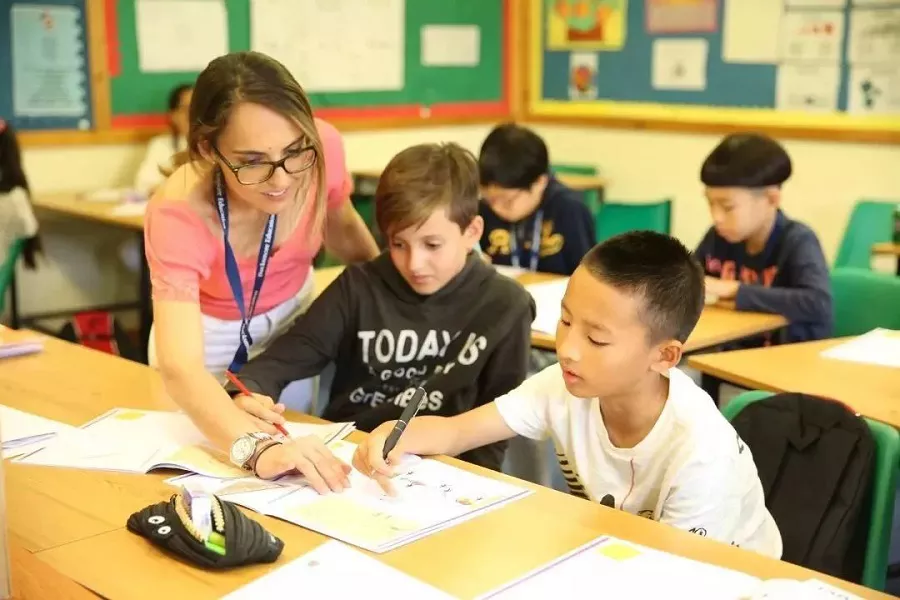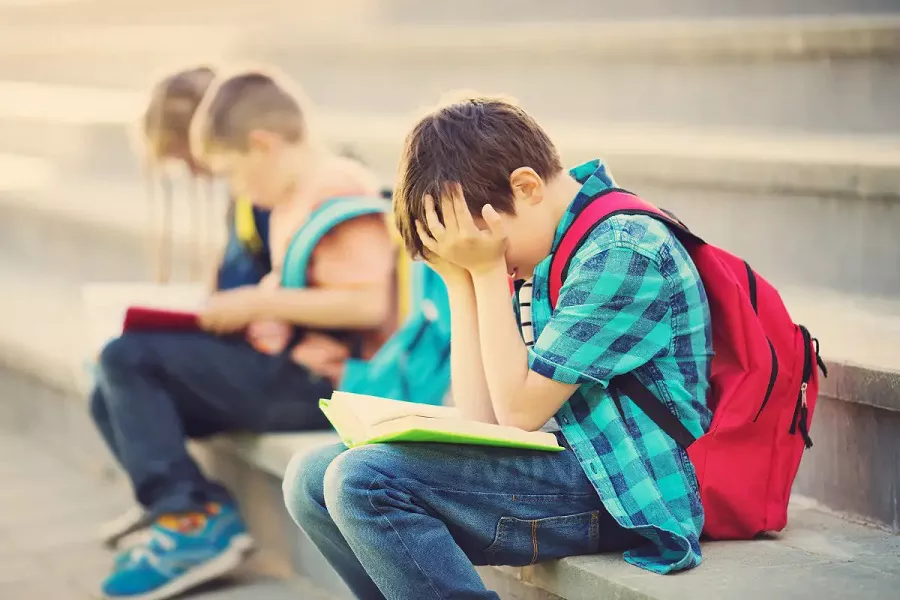Every time the school starts after the holidays, there are always a few children who cannot go to school smoothly. If you observe carefully, in a certain period of time, at the gate of the school, parents are often urging their children to enter the school… When children have obstacles to school, and multiple pick-ups and drop-offs are of no avail, parents are mostly anxious, discipline their children, talk about Reasoning, scolding, scolding, beating children, mothers will cry themselves. Facts have proved that when a child encounters difficulties in school, the parents worry, train, tell the truth, censure, scold, and fight against it! So, what should parents do when their child has trouble going to school?
Step 1: maintain inner peace, but attribution
If there is no peace, there is no wisdom to guide children. We should have such a concept – there is a reason for existence. Once a child has an obstacle to going to school, the parents cannot attribute it, think that the school has a problem, that the school is not suitable for their child, and it is even more unwise to find a way to transfer the child. Here, let’s take an analogy. A person who can’t swim can still not swim even after changing several swimming pools. We should find the reasons from the children themselves, and let the children learn to adapt. Adaptability is a measure of a child’s mental health.
Parents need to know that as soon as some children go to school, they say that they are uncomfortable here and there. This is because the child has obstacles in going to school, emotional stagnation leads to physical discomfort, headache, stomach pain, etc., in professional terms, it is the somatization of psychological problems.
Step 2: Work with your child to find out why
There are a variety of reasons for school barriers, but here are just a few:
- Enjoying happiness at home Too much help from parents or grandparents makes children lack diligence and independence, such as eating, dressing, schoolbags, and making beds. These things should be done by children themselves, and elders habitually do it for them, causing children to Reluctance to attend school or live in school because school is far less comfortable than home.
- Difficulties in transitioning from primary school to middle school. Children who have just “graduated to junior high school” have difficulty adapting to many changes, and escape and withdraw from their hearts.
- I feel that the new teacher does not care about me as much as the previous teacher. The teachers in the primary school have been with me for several years, and they are already very familiar and close, but the teachers in the first grade, facing more students and classes, do not seem to care about themselves as much as the previous teachers, feeling lost and lonely.
- Eat and live at school, and cannot be with parents. The original little friend is not around, there is no playmate who can tell the truth, and I feel lonely.
- It seems that academic performance is not as good as primary school. Excellent children from all over the world gathered together and rearranged their rankings. It was impossible for them to be the top few. It was not that the children’s learning status or grades had changed, but the grades had changed.
- The child has never slept in a bed alone, let alone in a room alone. Suddenly living in the school, living with many unfamiliar classmates, feels messy, uncomfortable, timid and insecure.
- There are many subjects, and it is difficult to learn.
- I get up early. With the evening self-study, I have less free time. I can’t use my mobile phone to play games or watch videos, novels, etc. at school. Experienced seventh grade head teachers, at the beginning of school, will guide children many times to adapt to the above changes as soon as possible.
Step 3: Problems in interpersonal relationships, lack of security
- There is little communication between parents and children. Parents work outside or are single parents. Children seek security among playmates and “small gangs”. Once members of small gangs reject themselves, they will panic and despair.
- Because of some small incidents, the relationship with the teacher or with some classmates is rigid, lonely and uncomfortable, and my feelings are amplified.
Step 4: No joy in learning
Originally, there was no fun in learning. Once I dropped out of school with my best friend and went to work, I didn’t want to go to school.
Step 5: Initiation of special events
- When the body is ill, during recuperation at home or treatment in the hospital, he is cared for by his parents, and he can do whatever he wants, without the task of learning, and there will be obstacles to going to school after recovering from the illness.
- Parents and teachers openly contradict themselves, making themselves feel that they are the opposite of their classmates and the opposite of teachers, and there is a wall between their hearts and the school.
Step 6: Make the best use of the situation to enhance the inner strength of the child
After finding out the reason, you must respect the child, because when some children have difficulties in going to school, they have contradictions in their own hearts. He (she) knows rationally that they should go to school, but when they walk to the school gate or the class gate, emotional things will take the lead. When he has the upper hand, he dominates his behavior, and the child beats himself when he is in a hurry. Only when children are emotionally stable, their emotions are diluted or satisfied, their cognitions are changed, and reason can dominate their behaviors, so that children can enter school smoothly. If you scold and beat the child, the child will be more lonely, or deliberately confront the parent.
Specifically, what should we do?
- In the face of children who are happy at home, sign an agreement with the children and do their own things.
- In the face of children who have difficulty transitioning from primary school to middle school, let the children scientifically understand the changes from primary school to primary school, and give children “refueling and making up for what is lacking”.
- In the face of children who have problems with interpersonal relationships and lack a sense of security, parents should strive to enter the children’s inner world to give children a sense of security. At the same time, they should sort out and ease the children’s interpersonal relationship problems. If parents can’t do it, seek psychological teachers. help.
- In the face of children who do not have fun in learning, first, try some beneficial activities, cultivate their interest in activities, and experience the achievements of their own efforts in activities. This experience and interest can be transferred. The second is to lower the requirements for children and only focus on their progress, so that children can experience and feel the joy they deserve for serious study.
- After a special event occurs, we must be people-oriented, pay attention to the child’s feelings, focus on the child’s growth, do not seek personal gain, do not “make a conflict”, and be a wise parent.




























